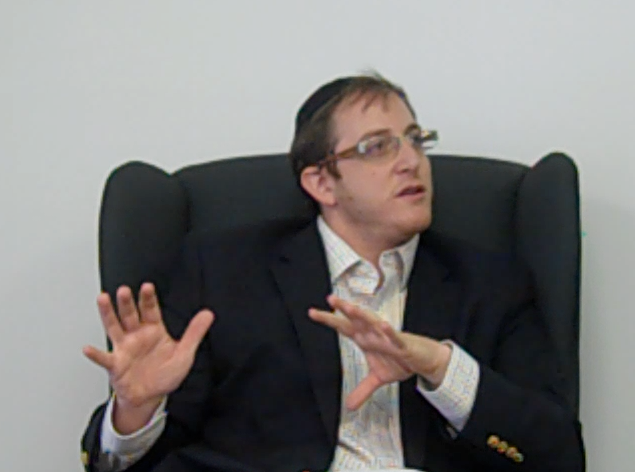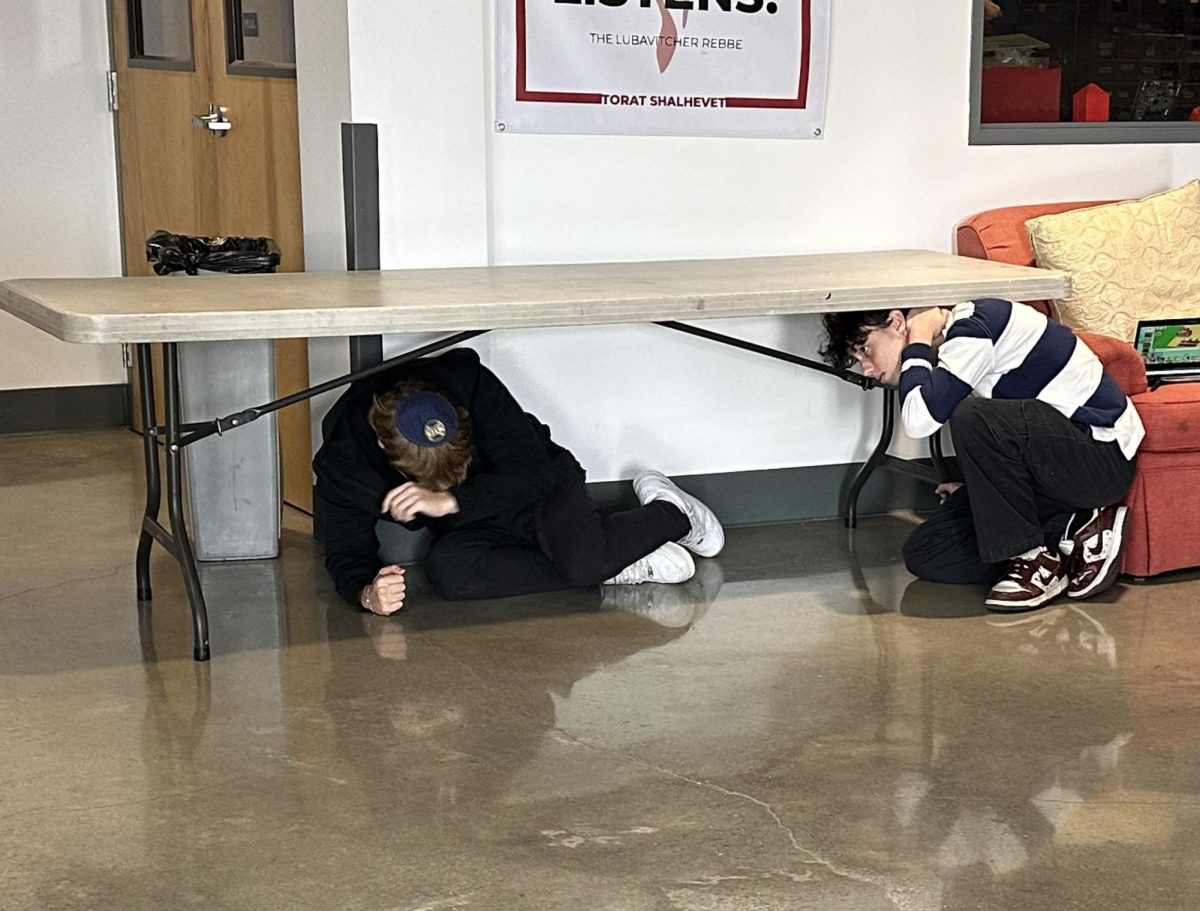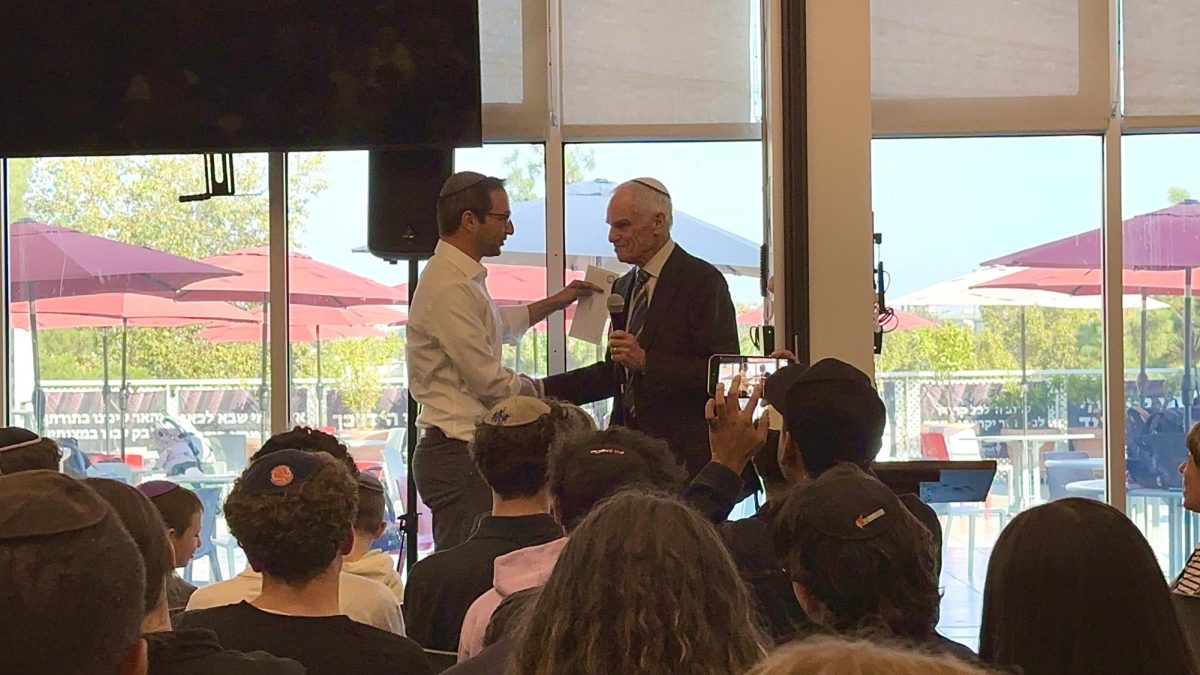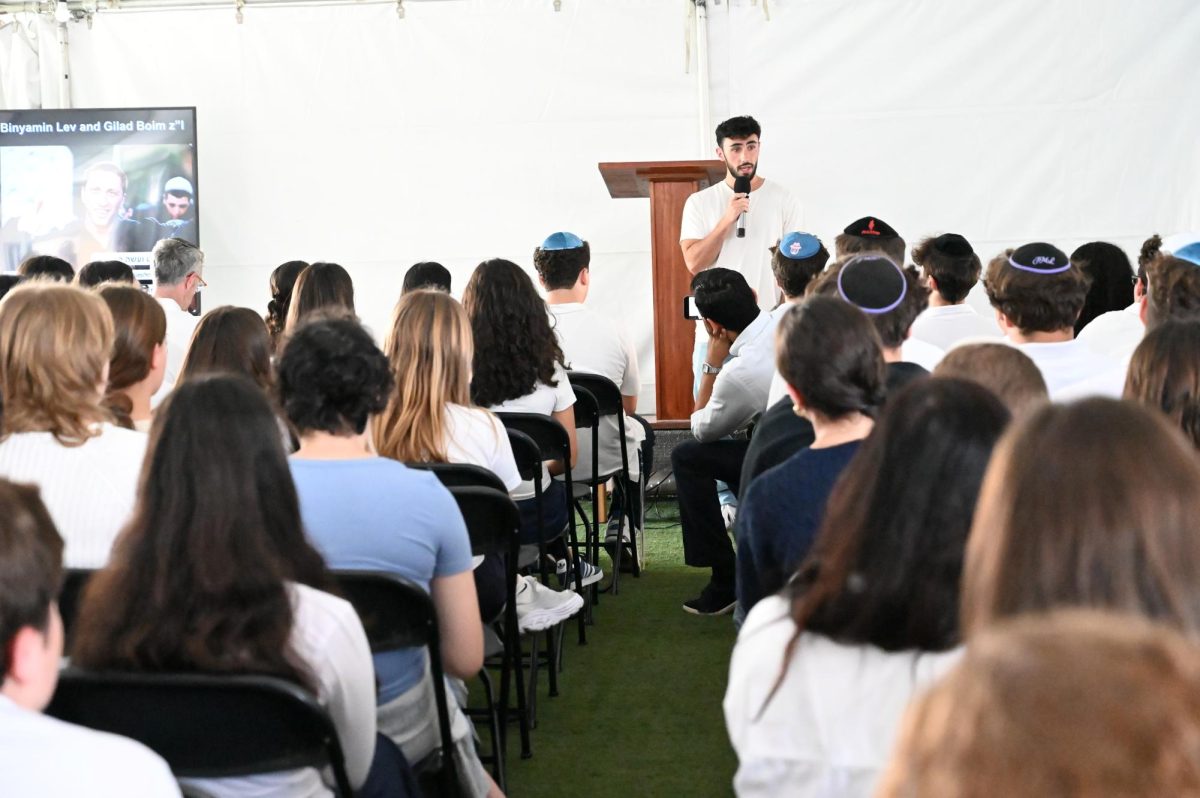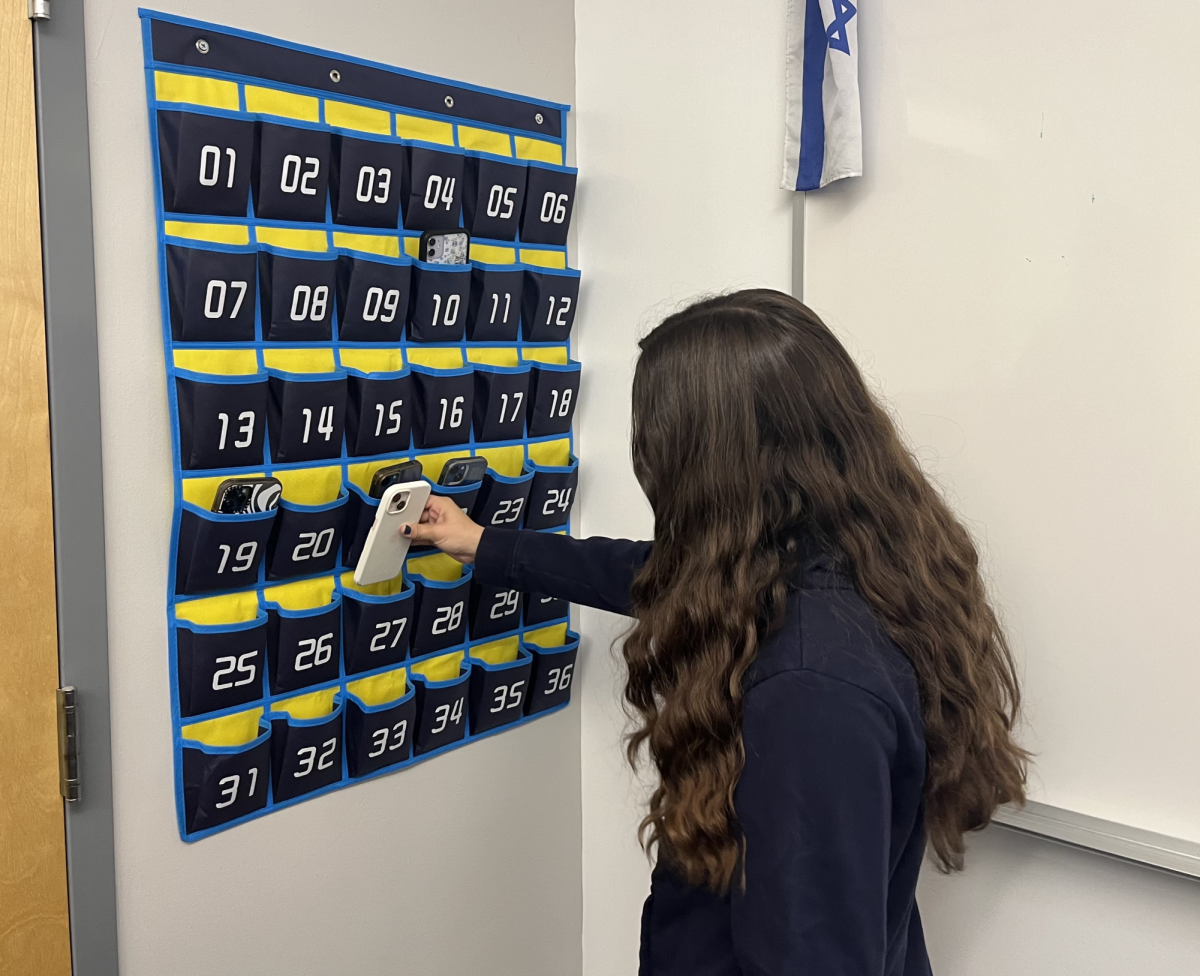Introducing promises to strengthen Shalhevet’s ‘Just Community’ and increase the efficiency of everyday learning, incoming Head-of-School Rabbi Ari Segal met with six of The Boiling Point’s editors and its faculty advisor for the first press conference of his tenure Thursday, Aug. 18.
In between settling into his new, whitewashed office and shooting out administrative e-mails, Rabbi Segal took an hour out of his morning to outline the reasoning behind major building changes, moving the seniors’ Poland-Israel trip to February, and a slew of other topics.
Also on his agenda: raising the profile of out-of-the-classroom activities ranging from Drama, Choir and Debate to Shabbatonim and Israel action events. Toward the end of the meeting, Sports Editor Tamar Willis asked Rabbi Segal to explain his re-labeling of what had been called extra-curricular activities as “co-curricular” activities this year.
“The answer is yes, they are as important as classes,” Rabbi Segal said. “I see them as part of the core curriculum of what we offer to the students.”
Nestled in a plush grey armchair between Tamar and Editor-in-Chief Leila Miller, Rabbi Segal also described how day-to-day classes should run—and how that could lead to more opportunities for out of the classroom programming. In the past, teachers have complained that extra-curriculars cause students to miss too much class, making it difficult to run discussions or cover all the material to prepare for AP exams.
“Bell to bell,” the Maryland-native said. “We’re going to be teaching every moment of every day… there are a lot of things we can do here if we make the best use of our time.”
Such efficiency can create room for students to participate in special programs like color war, Israel rallies, and Israeli Independence Day activities in addition to co-curriculars, he said.
“I promise you if everybody is in class on time and the teachers are teaching and the students come prepared and are learning, we will have lots of time to do these things,” Rabbi Segal said.
For seniors present, the event marked a chance to get to know the fifth head of school in as many years. School founder Dr. Jerry Friedman was head of school when they applied, Rabbi Elchanan Weinbach arrived when they were freshmen, and last year Nat Reynolds started the year and was succeeded after his accident by Mollie Aczel.
“We were able to hear first-hand how our new head of school was planning to guide Shalhevet,” Opinion Editor Rose Bern said after the meeting.
The new Head of School also okayed co-ed singing and said he saw nothing wrong with girls’ solos in choir. He indicated that he would not institute a requirement for male student-athletes to don kippot at sporting events, at least at first, though he thinks it’s a great thing to do — particularly when the team is winning.
“I think it’s an opportunity to make a kiddush Hashem (to sanctify God’s name). particularly given how good we are, and it’s one that lost when we all either don’t start out with them on or throw them off the minute we start playing,” Rabbi Segal said. “…Am I gonna mandate it at the start or even ever? I don’t think so. It’s a little more likely that I’m going to encourage the ball players to consider the role they can play with a kippah on their heads.”
Regarding the Just Community governance system, which includes the weekly Town Hall gatherings and committees such as Fairness, Agenda, and SAC, Rabbi Segal said adjustments would be made.
He said Town Halls and all the committees that serve as part of the school’s governing system “have started to feel more like pieces, rather than a whole, overarching sense of a Just Community.”
“We’re not only going to change the Just Community — I’d like to re-emphasize it,” Rabbi Segal said.
“We still have more just community and democratic involvement by the students than any school I’ve been at or seen,” he then added.
Rabbi Segal also addressed the rationale of concentrating teachers into one hallway, noting that teachers can more easily “collaborate” in the new configuration.
And he explained the moving of the seniors’ Poland-Israel trip from May to February, outlining the drawbacks of previous years’ trips occurring so close to graduation and summer.

